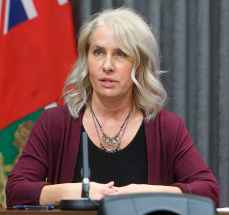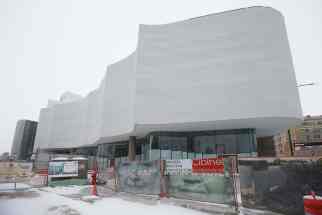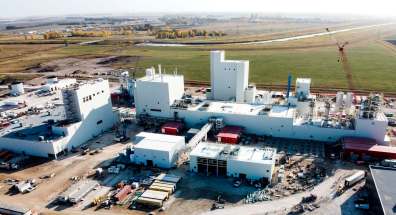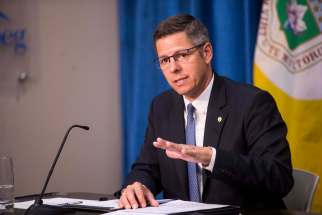Bowman still has time for legacy-building
Read this article for free:
or
Already have an account? Log in here »
To continue reading, please subscribe:
Monthly Digital Subscription
$0 for the first 4 weeks*
- Enjoy unlimited reading on winnipegfreepress.com
- Read the E-Edition, our digital replica newspaper
- Access News Break, our award-winning app
- Play interactive puzzles
*No charge for 4 weeks then price increases to the regular rate of $19.00 plus GST every four weeks. Offer available to new and qualified returning subscribers only. Cancel any time.
Monthly Digital Subscription
$4.75/week*
- Enjoy unlimited reading on winnipegfreepress.com
- Read the E-Edition, our digital replica newspaper
- Access News Break, our award-winning app
- Play interactive puzzles
*Billed as $19 plus GST every four weeks. Cancel any time.
To continue reading, please subscribe:
Add Free Press access to your Brandon Sun subscription for only an additional
$1 for the first 4 weeks*
*Your next subscription payment will increase by $1.00 and you will be charged $16.99 plus GST for four weeks. After four weeks, your payment will increase to $23.99 plus GST every four weeks.
Read unlimited articles for free today:
or
Already have an account? Log in here »
Hey there, time traveller!
This article was published 28/10/2020 (1872 days ago), so information in it may no longer be current.
While it is unusual for any mayor to signal an intention to retire from office years before the next election, it seems almost in character for Brian Bowman. Throughout what will have been his eight years in city hall — his tenure there will end with the 2022 municipal election — Mr. Bowman has proven to be a somewhat different kind of mayor.
Mayor Brian Bowman announces he won't run again
Posted:
Winnipeg Mayor Brian Bowman has decided not to run for another term in office.
He arrived in 2014 as a more youthful, less experienced politician who pledged to change the culture at city hall. On the heels of the controversy-laden Sam Katz years — which were characterized by numerous ethical lapses and procedural transgressions, mostly related to the execution of capital projects — Mr. Bowman seemed to be the tonic city government sorely needed.
And in some respects, he has lived up to that vow. Information about how and why the city does its business has been more readily available than under his predecessor’s watch. The mayor and city hall have also engaged with the general public, sometimes through social media and sometimes through policies. Mr. Bowman has consistently pursued progressive policies on climate change, racism and responsible government.
Mr. Bowman has also proven to be a competent fiscal manager. At a time when the Progressive Conservative provincial government has strangled financial support to municipalities by cutting or freezing grants and other funding mechanisms, Mr. Bowman and council have somehow made record amounts of investment in infrastructure while keeping property tax increases low and steady.
And he has attempted some very ambitious policies, not least of which was the move to impose development fees on new housing projects in the suburbs. However, in that example, we can also see the downside of the Bowman legacy: unfulfilled promises.
A court decision struck down the development fees, which would have provided a much-needed financial infusion to a city that is starved for new revenue sources. It was a decision ripe for an appeal or, at the very least, a reconfiguration of the fee program. Mr. Bowman has done neither, a non-decision that casts a pall on his legacy.
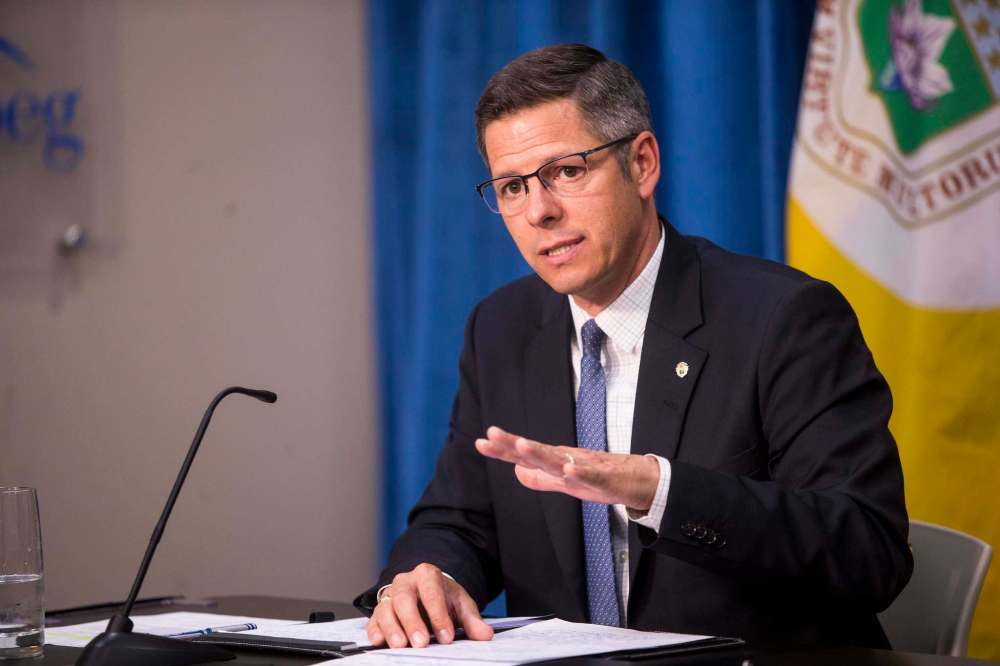
So, too, does his decision to abandon the movement to re-open Portage and Main to pedestrians. Mr. Bowman fought one election on a pledge to restore pedestrian traffic to the famed intersection; in the next election, he bowed to bitter alarmists who insisted on making it a ballot question yet again. Mr. Bowman’s decision to allow a plebiscite to be included in the vote and then stand back and allow others to fight the fight for a reopened intersection also left a bitter aftertaste in many citizens’ mouths.
There have been other examples of pledges and high-ideal goals that were ultimately left by the wayside. And his attempts to change the culture at city hall seemed to get bogged down in the repeated failure to actually change the structure of civic politics. The mayor and council, and city hall’s inordinately influential committee structure, are still largely intact despite Mr. Bowman’s occasional acknowledgements that the system doesn’t work.
However, there is a glimmer of hope in Mr. Bowman’s decision to announce his retirement so far in advance of the next civic election. Facing two years of what some have already referred to as lame-duck leadership, and freed of the need to pander to constituencies less progressive than he is, Mr. Bowman could use his remaining time in the mayor’s chair to really shake things up at city hall.
As it stands, Mr. Bowman’s legacy appears rather unremarkable. He has two years to write a different ending.

